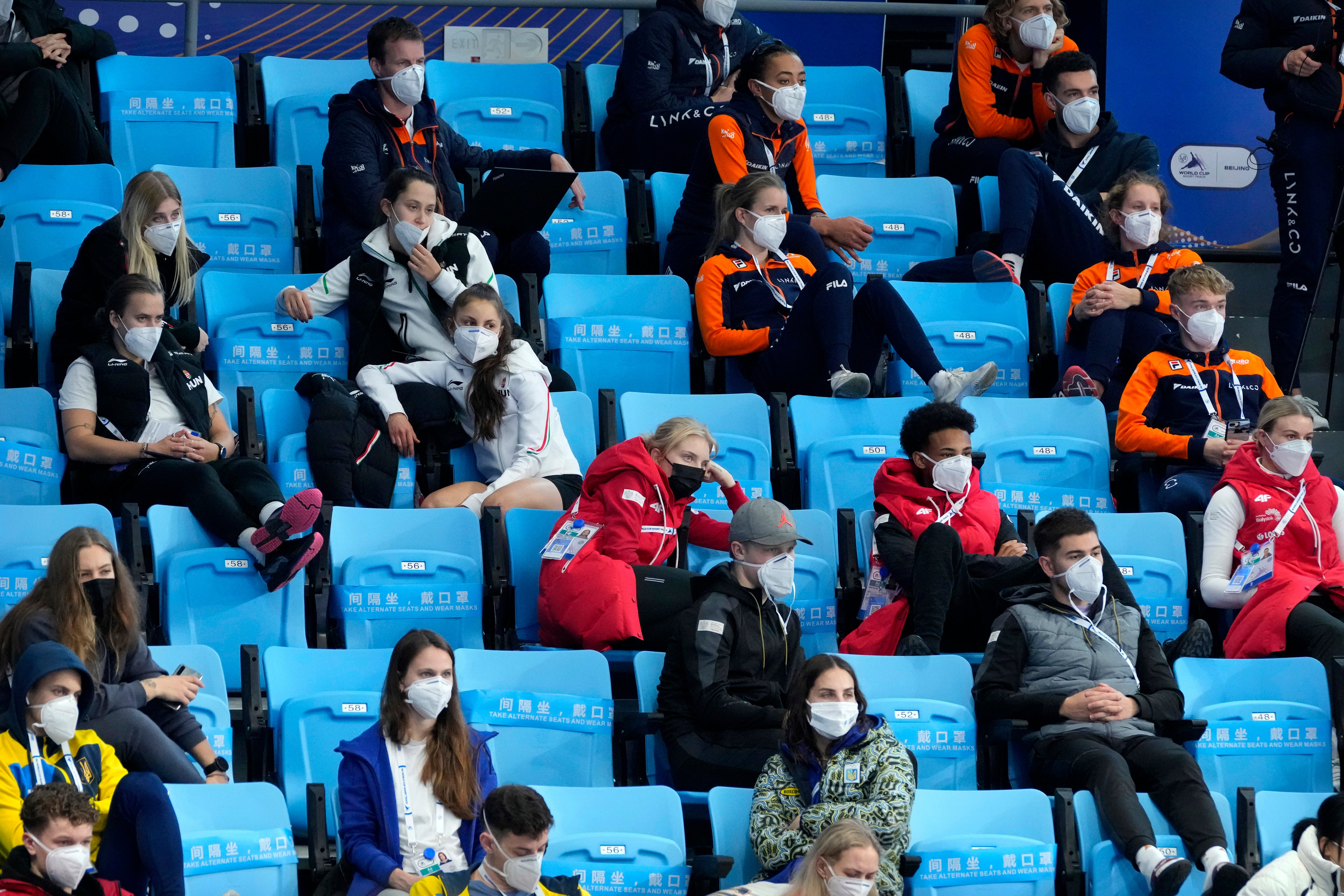Beijing Olympic athletes and their garbage face restrictions
Beijing Winter Olympics organizers say measures to prevent cross-infections between athletes and the outside world are being extended to holding their garbage inside the bubble dividing the two

Your support helps us to tell the story
From reproductive rights to climate change to Big Tech, The Independent is on the ground when the story is developing. Whether it's investigating the financials of Elon Musk's pro-Trump PAC or producing our latest documentary, 'The A Word', which shines a light on the American women fighting for reproductive rights, we know how important it is to parse out the facts from the messaging.
At such a critical moment in US history, we need reporters on the ground. Your donation allows us to keep sending journalists to speak to both sides of the story.
The Independent is trusted by Americans across the entire political spectrum. And unlike many other quality news outlets, we choose not to lock Americans out of our reporting and analysis with paywalls. We believe quality journalism should be available to everyone, paid for by those who can afford it.
Your support makes all the difference.Beijing Winter Olympics organizers say measures to prevent cross-infections between athletes and the outside world are being extended to holding their garbage inside the bubble dividing the two.
Officials said on Thursday that a team of special workers will be deployed to collect and transfer garbage inside the bubble to prevent the risk of coronavirus leaking out into the outside world. The Beijing Games begin February 4.
Ma Boyang, who is in charge of Olympic village planning and operations, said the waste will be held at temporary storage sites, to be transferred later for central processing.
China has stressed the possibility of the virus being transmitted on inanimate objects, particularly frozen food.
Most experts have ruled out the possibility of infection through such channels, saying the packaging carries only minute traces of virus, most likely deposited there by workers.
With the spread of the omicron variant, concerns have again turned to preventing infections among athletes that could lead to quarantines for as long as five weeks.
Yan Jiarong, a spokesperson for the organizing committee, said health authorities were continuing to monitor the situation, but believe the “relevant preventive measures in the guidebook for pandemic prevention have undergone rigorous scientific evaluation and are effective in ensuring safety and preventing the spread of the epidemic.”
In the event of a positive test for the virus within the bubble, authorities would follow the same protocols as they would were it detected outside, Yan said.
“We believe that these measures can effectively reduce the risk of the pandemic and that they can not only ensure the safe and convenient participation of athletes and all Olympic personnel in training, matches and work, but also protect the health and safety of the Chinese people,” said Yan.
The country has taken drastic measures, including frequent lockdowns and mass testing, to handle domestic outbreaks, although it has yet to stamp out infections entirely.
The National Health Commission on Thursday announced 69 new cases of domestic transmission, mainly in the eastern province of Zhejiang far from the Games venues. China has detected at least two cases of the omicron variant.
The spread of the mutation of the virus is the latest challenge to face the Beijing Games, already beset by technical and political challenges ranging from a lack of flights for athletes and staff to a diplomatic boycott from the U.S. and others to protest China's human rights abuses.